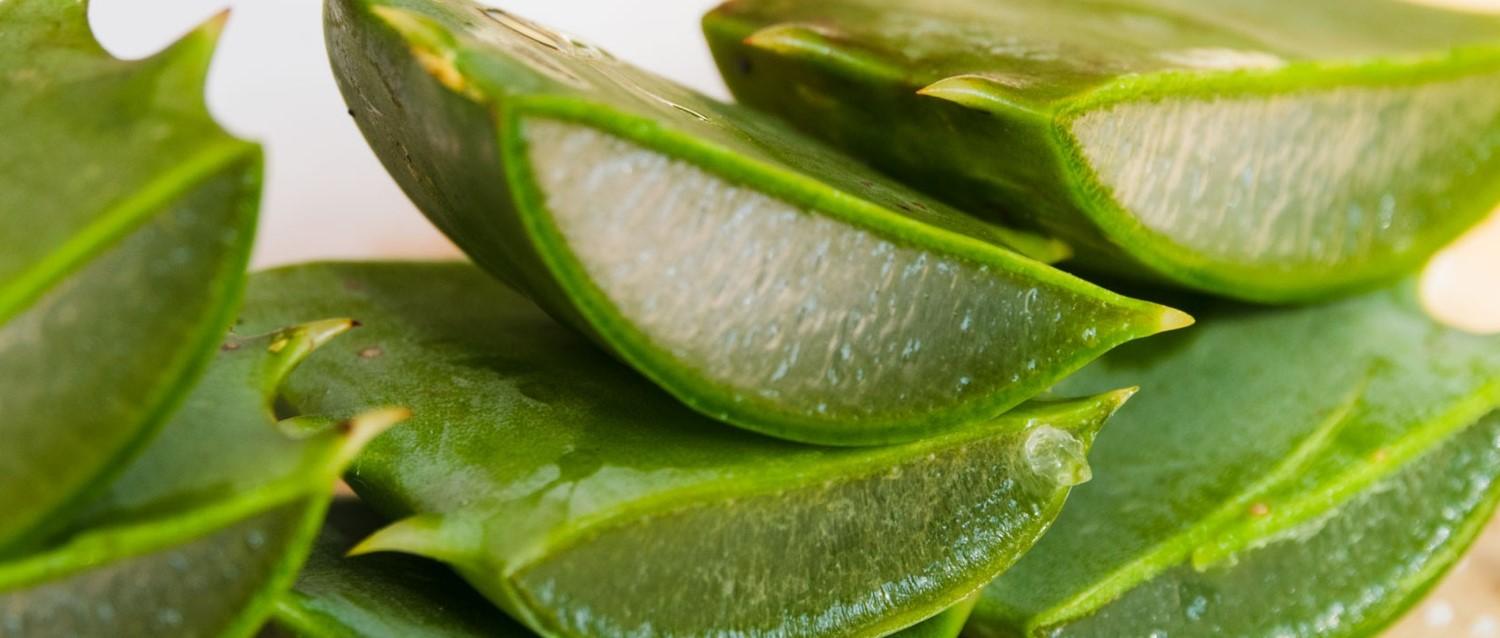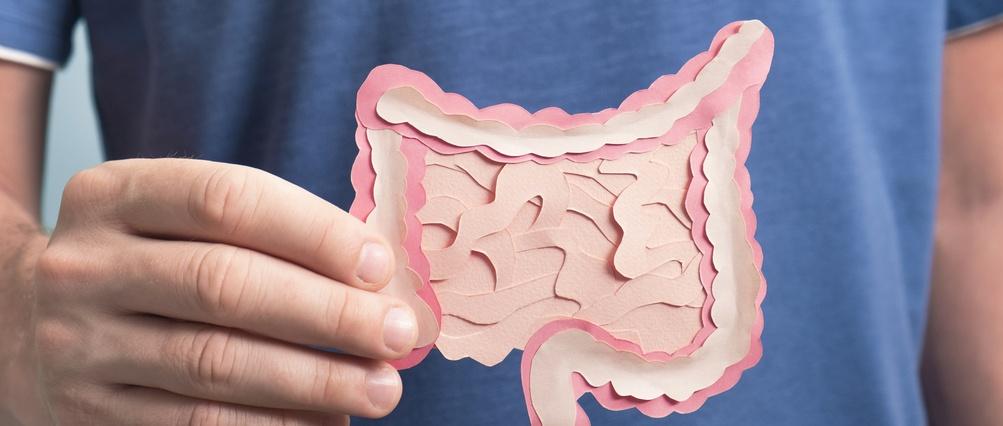
Does aloe vera juice really help with gut health?
Peer reviewed by Dr Krishna Vakharia, MRCGPLast updated by Emily Jane BashforthLast updated 18 Aug 2022
Meets Patient’s editorial guidelines
- DownloadDownload
- Share
- Language
- Discussion
Numerous claims about the health benefits of drinking aloe vera juice have been made on social media. It can supposedly treat wounds, revitalise skin, and improve gut health. But how trustworthy is this advice?
In this article:
Continue reading below
What is aloe vera?
Let's start with the basics - what is aloe vera? Aloe vera plant is a succulent of the lily family that grows natively in the wild in Africa and Madagascar. There’s evidence of it being used as a topical treatment dating back to around 1500BC.
Aloe vera has been used to treat health concerns such as:
Cuts.
Bites.
Wounds.
What claims are made about aloe vera juice?
You may have seen influencers on TikTok and elsewhere making all kinds of claims about aloe vera juice, crediting it for supposedly revitalising their skin and maintaining a healthy gut.
These videos have millions of views, with claims that drinking aloe vera juice for a week has brightened people's skin, improved texture, and given them more of a glow, as well as reducing bloating after eating. But the reality is people often say whatever they like on the internet and, unlike sources such as patient.info where advice is clinically accredited, their health guidance isn't always medically accurate. So, are these claims about aloe vera juice legitimate?
Continue reading below
How do you make aloe vera juice?
Dr Deborah Lee of Dr Fox Online Pharmacy explains that, if you pick up an aloe vera leaf, you can quite literally wring it out, and see the juice drip from it. You can also peel off the outer leaf coating and scrape out the gel-like interior to put it in a blender.
However, despite the many claims about the health benefits of aloe juice, evidence to support them is scarce.
What does aloe vera juice contain?
Aloe juice is actually a rich source of vitamins – especially A, C and E - along with folic acid (vitamin B9), calcium, and magnesium. It is favoured for being a low-calorie, low-fat plant-based food source.
Continue reading below
What is aloe vera juice good for?
Health benefits of aloe vera include:
Anti-inflammation
Aloe has great anti-inflammatory properties and is rich in antioxidants, which are good for overall health. Aloe vera juice could, theoretically, help counteract oxidative stress. Dr Fox explains the possible science behind what this means.
"Every day, as your tissues require oxygen for their daily processes, oxidation is taking place. The by-products of oxidation are called reactive oxygen species (ROS). These are electrically charged particles which can damage DNA. They are thought to underpin the development of many of the chronic diseases we see today. Antioxidants are vital as they counteract these ROS and neutralise them."
In short, antioxidants are powerful anti-inflammatories and help lower levels of chronic systemic inflammation.
Gastrointestinal effects
Aloe vera juice can also affect gastrointestinal health.
For example, aloe vera juice can act as a laxative. It contains plant compounds called anthraquinone glycosides which have strong laxative effects. They prevent sodium absorption in the gut and stimulate water flow into the intestines to produce softer stools and relieve constipation. But this effect has only been demonstrated in a few short-term studies.
In people with IBS, studies on the use of aloe juice have not shown statistically significant improvements in symptoms.1
Easing reflux
One small study concluded that consuming aloe vera syrup at night improved gastro-oesophageal reflux (heartburn) with no adverse effects.
Findings also suggested that aloe vera juice can reduce acid production - acid reflux. However, there is no robust evidence to suggest this be used instead of medication or other liefstyle measures.
Controlling blood glucose levels
Studies have suggested that drinking aloe vera juice may help control blood glucose levels in pre-diabetic patients.3
However, Dr Fox notes that, while these numbers sound promising, we cannot make assumptions that these results can be used in people with diabetes.
She states that there is no current recommendation for patients with type-2 diabetes to drink aloe juice.
Can aloe vera juice help with weight loss?
Aloe vera gel powder is commonly found in weight loss products, such as herbal and probiotic supplements and juices.
There have been claims of aloe vera helping to boost metabolism when consumed before a meal, as well as helping with digestion, and burning fat.
However, research on this matter is scarce.
"Much more research needs to be undertaken before claims about the use of aloe vera for weight loss can be substantiated," states Dr Fox.
Is aloe vera juice good for skin?
"Many studies have shown benefits from the topical use of aloe vera gel on the skin, hence why it is a common ingredient of many hair and skin care products," Dr Fox says.
Aloe vera is found in products such as face masks, and is even applied in an almost natural form. Dr Fox explains that it can bring fresh blood and oxygen to the surface. As a result, aloe vera products can reduce redness and puffiness, and balance out complexion.
Furthermore, the National Psoriasis Foundation says that aloe vera gel has potential to soothe eczema and psoriasis, but research is limited.
But, it is not advised to use aloe vera on severe wounds, since the gel can aggravate and can slow down the healing process.
Taking health advice from social media? Here's what you need to remember…
Dr Fox offers some counterarguments to the aloe vera claims, as a reminder to consider the big picture before getting your hopes up about products you see advertised online.
Is aloe vera juice safe?
The safe use of aloe vera juice has only been confirmed for up to two months, and the safety of longer-term use is not known. This is something to bear in mind, as it could cause an electrolyte imbalance.
Does aloe vera juice really prevent dehydration?
While claims state that aloe juice offers hydration, it actually does the opposite, encouraging water to be transported into the lumen of the intestines, meaning it can cause dehydration, not prevent it. Think about how you feel dehydrated after a bout of diarrhoea - the laxative effect can leave you needing more fluids.
What about antiviral effects?
There are currently no studies on the antiviral effects of aloe vera juice.
Can aloe vera juice cleanse the liver?
The liver's job is to cleanse toxins from the body, so it does that without the help of aloe vera juice. There have been some reports of aloe vera juice inducing hepatitis, which is an inflammation of the liver. Aloe vera juice is described as being hepatotoxic, meaning it can be damaging or destructive to liver cells.
What are the risks of aloe vera juice?
While aloe vera might seem harmless, there are factors to weigh up before consuming it or applying it to your skin.
For example, you can be allergic to aloe vera. Dr Fox says this can cause contact dermatitis and taking aloe vera by mouth can lead to diarrhoea and vomiting.
Therefore, it should not be ingested by anyone with an allergy to the Liliaceae family. These include other members of the family such as onions, garlic, and tulips.
"If you have some sort of kidney or heart disease, aloe vera can lead to changes in electrolytes for up to two months, as well as changes in sodium and potassium levels. Long-term studies are yet to be carried out, so safety cannot be guaranteed," says Dr Fox.
You should also take caution if you are on hypoglycaemia medication and have type-2 diabetes, since the possibilities of aloe vera lowering blood glucose are not well understood and there is a risk of inducing hypoglycaemia - where blood sugar drops too low.
Aloe vera and pregnancy
If you are pregnant, aloe vera juice is to be avoided as well. Research is limited on its effects on reproductivity, but animal studies have found aloe vera juice can cause sperm damage and mortality.4
The yellow extract from the inner leaf of aloe vera is called aloe latex. This is particularly unsafe for those who are pregnant and breastfeeding, as it has been found to be a powerful laxative.
Dr Fox’s top tips for consuming aloe vera safely:
Always check the product labels and avoid those with added sugar.
Go for pure, organic juice.
Store the juice as advised, in the fridge, away from direct sunlight, and consume it by the use-by date.
Don't consume more than the recommended amount.
Do not give to children.
Drink plenty of water at the same time or dilute the aloe, as it can be dehydrating.
Cut back your usage if you get side effects - such as tummy cramps, diarrhoea, or excess gas.
Check with a healthcare professional if it is safe to drink if you suffer from any chronic conditions, or take regular medication, including diuretics or steroids.
Further reading
Patient picks for Gut health

Diet and nutrition
What is your gut microbiome?
Let’s talk about something small that has a big impact on your health - the gut microbiome. This hidden universe of microbes plays an important role in your wellbeing. How you treat these tiny residents can make a world of difference to how you feel.
by Victoria Raw

Diet and nutrition
The best gut health foods - and why you need them
Our guts play a key role in our health. Recent years have seen lots of research into the gut microbiome - the trillions of micro-organisms that live in our gut - and the affect they have on our physical and mental health. So how can we keep our digestive systems happy and healthy?
by Amberley Davis
Continue reading below
Article history
The information on this page is peer reviewed by qualified clinicians.
18 Aug 2022 | Latest version
18 Aug 2022 | Originally published

Ask, share, connect.
Browse discussions, ask questions, and share experiences across hundreds of health topics.

Feeling unwell?
Assess your symptoms online for free
Sign up to the Patient newsletter
Your weekly dose of clear, trustworthy health advice - written to help you feel informed, confident and in control.
By subscribing you accept our Privacy Policy. You can unsubscribe at any time. We never sell your data.